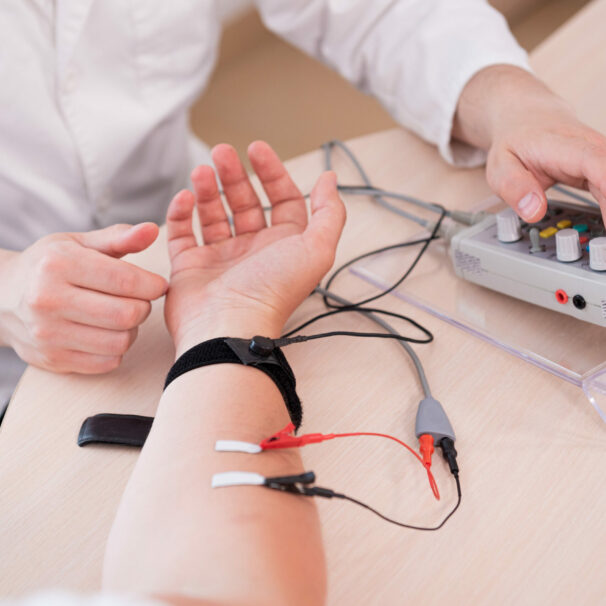HealthProviders DB is a comprehensive database of healthcare providers, including a complete directory of all Electrodiagnostic Medicine Physicians.
Physician Healthcare Taxonomy Code 204R00000X
As of today, the following are the total number of Electrodiagnostic Medicine Physicians nationally, in your State, and near your location.
Select a State below to view the list by State. Additionally, you can narrow the list by city, among other options, from the Filter Panel, which you can open by clicking the vertical ellipses ⋮ in the upper right corner of the app.
Alaska – Alabama – Armed Forces Pacific – Arkansas – American Samoa – Arizona – California – Colorado – Connecticut – District of Columbia – Delaware – Florida – Federated States of Micronesia – Georgia – Guam – Hawaii – Iowa – Idaho – Illinois – Indiana – Kansas – Kentucky – Louisiana – Massachusetts – Maryland – Maine – Marshall Islands – Michigan – Minnesota – Missouri – Northern Mariana Islands – Mississippi – Montana – North Carolina – North Dakota – Nebraska – New Hampshire – New Jersey – New Mexico – Nevada – New York – Ohio – Oklahoma – Oregon – Pennsylvania – Puerto Rico – Palau – Rhode Island – South Carolina – South Dakota – Tennessee – Texas – Utah – Virginia – Virgin Islands – Vermont – Washington – Wisconsin – West Virginia – Wyoming
Medicare
The following are the total number of Electrodiagnostic Medicine Physicians who accept Medicare in your State, the number who have opted out of Medicare, and the total number excluded from participation in Medicare nationwide.
The diagram below shows all the Electrodiagnostic Medicine Physicians across the country, represented by blue bubbles. The larger the bubble, the greater the concentration of providers in that area. Red bubbles represent Medicare-excluded providers, with the larger bubbles indicating a higher percentage of excluded providers in that region. You can change the bubble size to be based on exclusions from the Size menu.
What do Electrodiagnostic Medicine Physicians do?
Electrodiagnostic medicine physicians specialize in diagnosing and evaluating neurologic, neuromuscular, and muscular system disorders using neurophysiologic (electrical) testing.
They perform and interpret tests such as nerve conduction studies (NCS) and electromyography (EMG) to assess nerve and muscle function, helping identify causes of symptoms such as numbness, tingling, weakness, and cramps. They then work to develop effective treatment plans.
What they do
Diagnose and evaluate: They identify and assess conditions affecting nerves, muscles, and the central nervous system.
Perform tests: They use neurophysiologic techniques to measure electrical activity in muscles and nerves.
Interpret results: They analyze the data from these tests, along with patient histories and physical exams, to understand the nature and location of a neuromuscular problem.
Guide treatment: The information gathered from these evaluations helps guide the development of personalized and appropriate treatment plans for the patient.
Common conditions diagnosed
- Carpal tunnel syndrome and other entrapment neuropathies
- Radiculopathy (pinched nerves in the neck or back)
- Muscle disorders like myopathies and muscular dystrophy
- Neuromuscular junction disorders, such as myasthenia gravis
- Peripheral neuropathies, including those caused by conditions like diabetes or ALS
Key electrodiagnostic tests
Nerve Conduction Studies (NCS): Measure the speed and strength of electrical signals as they travel through nerves.
Electromyography (EMG): Measures the electrical activity of muscles themselves, often by inserting a fine needle into the muscle to record its activity.

